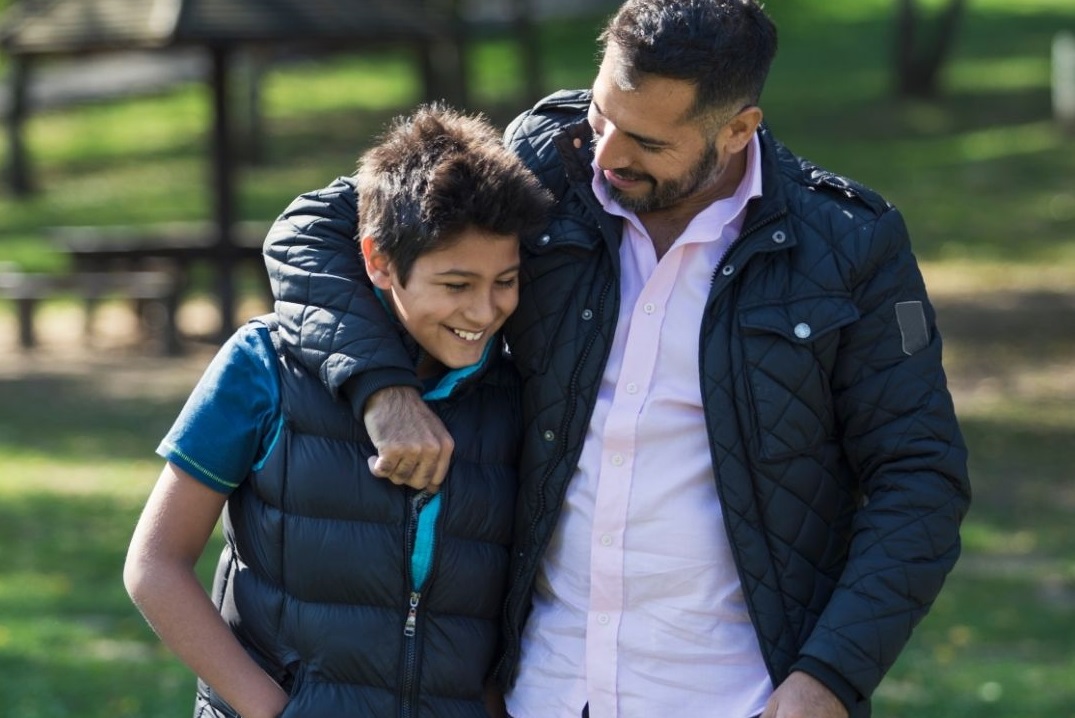Alex is a 49 year old business leader in a large global corporation. He’s risen steadily in the company and the increase in stature has coincided with willingness to take on an overseas position. Ten to twelve years ago, when his family was younger, he and Mary found it easy to embrace a new transition. They had relocated twice within North America for Alex’s career growth.
Mary is an adventurous traveler and owner of a small online boutique business she can oversee from anywhere. She’s also benefited from Alex’s assignments both personally and in her business connections. Over the years, the couple has prioritized making career decisions together. They also had strong family values their careers needed to support. This was easy when their 3 children were in preschool and elementary years. However, Alex’s latest promotion felt disruptive to his son, now in his early teen years.
Coaching for Readiness and Support of the Leader
Having worked with me during previous career developments, Alex reached out for coaching help as he and Mary made this pivotal decision for his career and leadership growth—and for his son’s best interest. Our long coaching relationship over the years of career and family growth created ease going forward.
Since the price tag for companies is costly if an assignment fails and the stakes for an individual, couple or family are also high if everyone is not on board and ready for such a transition, for each of Alex’s relocation transitions we always coached to assess the 4 key needs to ensure success:
- Employee / Leader Readiness
- Mate and Family Readiness
- Support throughout the Assignment
- Re-Entry and Next Assignment/Life Phase Planning
During this round of our coaching sessions, Alex and I started by reviewing his readiness and the companies plan for future growth. He was ready for the position and felt reassured of full sponsorship from superiors who also offered support throughout the demanding new assignment. I reassured him we would maintain contact for outside coaching support as needed.
Coaching for Mate and Family Readiness
As you look around my website, you’ll find information stating well-known facts that those with relocation experience say success is dependent on 1) the employee/leader’s readiness for the assignment and ability to hit the ground running, plus 2) the spouse’s ability to handle the change and juggle the demands on his/her mate and everyone in the family. Most say this is the most important factor in success for both the company and the couple/family.
Alex and Mary had coached with me over the years and we did so now. In our coaching conversations with the couple, it was clear that Alex and Mary were on the same page—ready for the assignment, but also wanting to ensure their son’s comfort with the changes. Their younger children—daughters were 4 and 6 years old. As we discussed schools, friendships, neighborhood and housing, these parents felt the transition would be easy for the girls. Grandparent visits and amenities of housekeepers and nannies in the new location would smooth the way.
In another article on Couples and Career Transitions: 4 Steps to Maximize Your Success I talk about bringing your family goals and needs into the planning. It involves everything from making sure the kids have a good education to family adventures. As noted in Alex and Mary’s circumstance, it’s easier to start this young. Younger kids love these activities and often have much input. If you start these discussions when they are older it can be more challenging.
For Alex and Mary’s 13 year old, Zach, the adjustment was more complicated. He already knew how to discuss decisions openly with his parents. He also knew how to share feelings and knew the downside of leaving good friends, familiar neighborhood and comfortable school environment. He was also particularly close “Poppop” his grandfather on Alex’s side, a warm hearted former small business owner. They shared a love of Poppop’s dog Bailey, and went for frequent walks together. These felt like losses to Zach. He needed support to make his way so he came out resilient on the other side.
Coaching to “Frame the Change”
I told Alex and Mary how a colleague recently shared the story of a teenager asking his father “So tell me, what’s in this for me?” when the family was being moved one more time for his dad’s job. They could feel the pain of that question Zach was also asking in his own way. We coached on how to “frame” the transition for Zach and walk him through the change.
Here’s the approach these parents successfully implemented:
- The first step was to clarify for themselves—not verbally to Zach, but in their movement forward—that the decision to relocate was not in Zach’s hands. He was to young and would certainly question his impact on his father’s career in the future. It was their decision as parents, and their task to help him through it.
- The next task was to listen—a lot. They set out with Poppop to simply ask what Zach was feeling and to then be quiet and see what happened. Alex was coached to be the one to last say goodnight, lie down on the bed and say “When you’re ready, I’d like to hear how you’re feeling.” The safety of his room, comfort of lying down prone and no-expectation approach from his father allowed Zach to talk. They did this every other night for a few weeks.
Mary’s listening came over carrot sticks and dip or chocolate chip cookies at the kitchen counter after school.
Poppop invited listening on long walks, followed by active roughhousing with Bailey.
- Sharing their own concerns and excitement. Alex and Mary were coached to share their concerns simply, along with excitement, once in awhile during family dinner conversations. Sharing simple things like losing contact with friends, missing holiday times, or not speaking the language were encouraged to be mentioned once in awhile in an open-ended way. They were to role modeling that adults also have concerns in the face of change.
This allowed everyone to speak concerns and the pleasant upshot was that all three kids spontaneously came up with proactive solutions to offer one another and their parents.
- Coached in “growth mindset” conversations based on the work of Dr. Carol Dweck, after some listening to Zach’s concerns, the caring adults in his life then began to ask him to imagine what he might 1) do to lessen the perceived losses and 2) gain from the next few years in the transition, what strengths he already had that he could use to make new friends and adjustments. Without any other prompting, they let Zach explore around the topic. As he did so, with their supportive presence, Zach grew in confidence and voiced many creative options which he began to carry out on his own. For example:
- Invited friends to the house to “advise” him and develop ways to stay in touch across the miles. Over milk and choc chip cookies they assembled email, text, phone and online files for each of them. They decided on group and one-on-one activities before the move date and planned a going away party. His friends and their families were invited to visit them in their new country and many of them began to make plans. Zach began to talk about his shyness in younger years that had become a confident sense in making friends. He knew he could do this in their new surroundings.
- Zach and Poppop also discussed Facetime and zoom conversations on a regular basis. The entire family planned out the coming year’s schedule of vacation time with one another that Zach and everyone could look forward to.
- Then Zach surprised us all with an unexpected and brilliant request. He wanted to go to the office with Alex and meet a colleague or two who had fulfilled a successful overseas assignment and then returned. He wanted to know—that this was a good move for his father—and also how it had impacted other families.
- Out of this Zach and his parents were invited to a ball game with one of the colleagues and his kids. Slightly older than Zach, these teens shared their experiences, advice on fitting in abroad and promised to be available to discuss the transition back to the US when Zach returned.
In a few short months, Zach practically “grew up” before his parent’s eyes. Without interference, beginning with being listened to fully, he was allowed all his feelings which then evolved into proactive strategies he implemented himself.
In Summary
The wonderful benefit of my coaching work with individual leaders, career professionals, owners and partners is that I know there is a ripple effect. Coaching with Alex included Mary and their children. This particular coaching not only helped Alex, but also his son. When one person steps into their strength, they can frame expectations and role model healthy responses for everyone around them.






